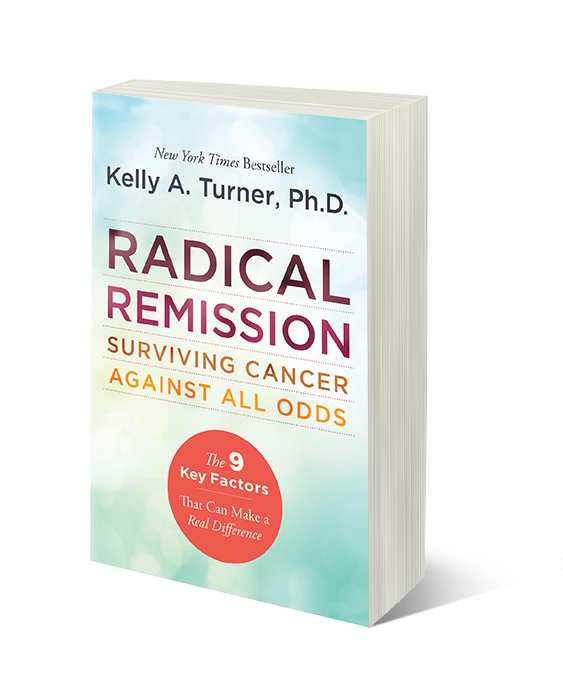Mindfulness

Radical Remission through Mindfulness
Dr. Magdalena Naylor, MD, PhD
Dr. Magdalena Naylor, MD, PhD, taught her patients mindfulness techniques for years, but she gained a deeper, personal understanding of its power when she was given a stage 4 uterine cancer diagnosis and was told she had 6 months to live. Learn what happened and why she believes she is cancer-free over 12 years later.

Mindfulness affects your body on a cellular level
There are lots of studies on mindfulness but “Mindfulness meditation and the immune system: a systematic review of randomized controlled trials,” published in 2016, provides the most comprehensive assessment of the clinical data I’ve seen. It analyzes 20 randomized clinical trials and it reports on consistent physiological changes that occur through mindfulness practice. Like most research it calls for further study, but it also acknowledges the possible effects of mindfulness on the following measures:
Reduced inflammation
Increased immune system T-cell activity (killer T-cells)
Increased enzyme activity (telemerase) to prevent further DNA damage
Source: Black DS, Slavich GM. Mindfulness meditation and the immune system: a systematic review of randomized controlled trials. Ann N Y Acad Sci. 2016 Jun;1373(1):13-24. doi: 10.1111/nyas.12998. Epub 2016 Jan 21. PMID: 26799456; PMCID: PMC4940234.

Mindfulness is…
“the process of becoming aware of your current thoughts, feelings, and behaviors without judgment.”
Source: Dr. Joe Dispenza
Everyone can do it.
It’s not hard, but it requires regularity to create lasting cellular effects.
My therapist says, “Marybeth, keep your head where your feet are.” She is trying to get me to stop and fully live in the immediate moment. Don’t think about the past or the future; instead, feel every sensation of living right now. Observe your breath. Can you feel your heart beating? Absorb the sensations in and around you. When we practice this kind of focus with regularity, we can literally change our physiology. I like to visualize the positive effects happening in my body on a cellular level. Dr. Joe Dispenza is an incredible resource.
Forgive the sensational graphics, but I really enjoyed this meditation session by Dr. Joe Dispenza. He has lots of tools and interviews on YouTube.
Mindfulness is best when it becomes a healthy habit
Creating a new habit can be challenging but you can do it. For advice on how to adopt a new behavior and stick with it, I turned to James Clear’s book, “Atomic Habits”. It suggests trying to be 1% better every day.

Research was also conducted amongst young breast cancer patients and found to have a positive biologic effect on inflammation.
“In addition, the intervention led to improvements in fatigue, sleep disturbance, menopausal symptoms, and positive psychological processes. Mindfulness also led to significant reductions in pro-inflammatory gene expression and bioinformatic indications of pro-inflammatory signaling.”
Bower JE, Crosswell AD, Stanton AL, Crespi CM, Winston D, Arevalo J, Ma J, Cole SW, Ganz PA. Mindfulness meditation for younger breast cancer survivors: a randomized controlled trial. Cancer. 2015 Apr 15;121(8):1231-40. doi: 10.1002/cncr.29194. Epub 2014 Dec 23. Erratum in: Cancer. 2015 Jun 1;121(11):1910. PMID: 25537522; PMCID: PMC4393338.
How much and how often?
This is based on the analysis of 20 randomized controlled studies, but it does NOT mean that other amounts of mindfulness won’t have an impact. It only means that this was the common amount of time used for the trials that found a measurable change in physiology.
I practice mindfulness for 20-minutes every morning when I wake-up. I need the regularity to ensure I don’t forget. I find it helps ground me when I start my day. Dr. Magdalena Naylor suggests 15-20 minutes in the morning and evening, so I’ll be adding a night session.
Target 2-2.5 hours per week plus an occasional intensive session
Dr. Joe Dispenza
“When the body is allowed to relax, repair, heal, and detoxify itself, one can enjoy good health. But when in a state of threat, or fear, or stress, the body prioritizes defense largely at the expense of health.”
Some of his media is a little sensational, but his message feels intuitively correct to me. Watch his interview with “School of Greatness” and let me know what you think.
Everyone benefits from mindfulness
Most media describe the longevity benefits of mindfulness, but the evidence is directly applicable to cancer patients. The physical benefits of mindfulness impact the biological systems we need to better equip our bodies to fight cancer:
Reduced inflammation
Increased immune system T-cell activity to identify and kill cancer cells
Increased enzyme activity (telemerase) to prevent further DNA damage
Radical remission is real & more common than you think
Kelly Turner asks the question that the medical community needs to ask, “why do some cancer patients have unexplainable remissions?” This book identifies common things that these unique patients did in an attempt to better understand their success over the disease. It includes specific case studies and is a very easy read. I LOVE it.
Embrace
Your Inner
Guru
I used to do a lot of Bikram Yoga (hot room yoga). I’ve been drawn to it again lately because it requires mindfulness. I can’t balance and breathe in the heat without a great deal of focus. I’m also learning that staying hydrated and flexible can be another anti-cancer strategy — stay tuned for more info soon.
Send me an email and tell me what you do to get into a deep state of mindfulness.







